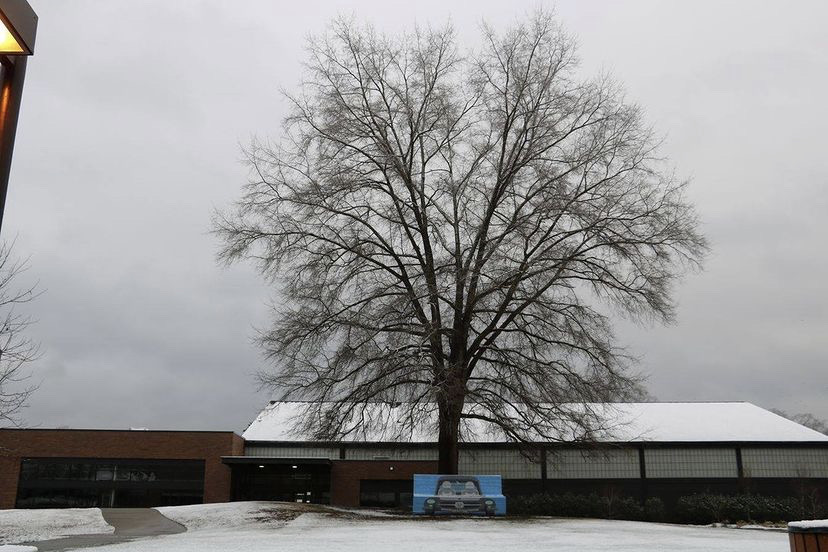By William Biersach (’22)
October 21, 2021
What is the predominant culture at DA?
Durham Academy is a college preparatory school, which means that our campus culture is characteristically high-pressure, with many students participating in lots of extracurricular activities in addition to rigorous course schedules. Students often feel pressured to participate in as many clubs as possible, play a varsity sport, act in the musical, serve on student government, compete in speech and debate, all while getting straight-As. The school recognizes this is not only an unrealistic goal but a goal that is damaging, especially when the pressure to achieve this goal percolates deep into the fabric of the culture of our school.
Administration’s Reaction
The administration is working to understand how to address this problem. One way they have addressed this school culture problem is by assembling a task force of faculty that investigates how well Durham Academy fulfills the promise made in its mission statement. Principally this task force focuses on whether the school realizes its promise of producing students who are happy in addition to moral and productive. The school defines happy using five terms: curiosity, engagement, authenticity, joy, and balance.
Work of the Task Force
The main way this task force assesses the school’s success at instilling these qualities in students has been through internal discussions and meetings with students. One such meeting was between Mr. Regnerus and Ms. Fulton–who are both on the task force–and the Student Academic Committee–a group of roughly fifteen students that more or less represent all grades and many perspectives. Mr. Regnerus and Ms. Fulton asked questions that focused on how the school promotes the five individual characteristics subsumed within the word happy in our school’s mission statement.
Focuses of that Discussion
The discussion between the Student Academic Committee and the representatives from the mission statement task force centered largely around the characteristic engagement and curiosity. Specifically, members of the Student Academic Committee talked about their experiences with independent studies and AP classes. They explained how in their opinion those two programs either increased engagement or curiosity or stifled it. Many students mentioned that AP classes and the core five subjects can be limiting for students. The underlying cause of that limitation is the intense college preparatory culture.
Scope of Administration’s Abilities
The school administration cannot “fix” our school’s high-pressure culture with simple policy changes. New school programs cannot “fix” that problem either. The most meaningful solutions will arise from student leaders. Students who understand the challenges of our school’s culture are best equipped to lead the school to a healthier culture. Administrative policy is important, but for Durham Academy students to be happiest, students have to lead the way.
An Exemplar of A Student Leader
Stewart Roessler (‘22), Senior class president, is one of the few who can see right through the chaos; he focuses on what makes the senior class happy. His leadership embodies the five characteristics of a happy Durham Academy Student.
Engaged
Stewart is engaged with his work as the president of the senior class because of what it means to him on a personal level. “I came to DA in fourth grade. It has been intimidating at times to step out and lead, but seeing Edward’s leadership inspired me to step up and work to make the grade as unified as possible,” he said. His personal engagement translates into the engagement of the whole senior class. He successfully encourages students to participate enthusiastically in senior class activities because it is clear that he worked hard to make the activities as fun as possible.
Engaged in the Community
Stewart helps our grade be engaged in the community as well. He was a strong supporter of our class identity when he presented a check of all the money we raised to Vs Cancer, culminating our grade-wide effort to battle pediatric cancer. Although he was not the president when we took on Vs. Cancer as our class charity foundation, he gave a beautiful speech that captured the common sentiment of our grade before presenting the fruits of our collective fundraising efforts.
Joy
Stewart faces the challenge of making our class meetings and entire senior year fun. Some of the fresh ideas he brought with his presidency include games like “Green-Light, Red-Light” for class meetings, the “What do You Meme” class competition, and a potential movie night. Stewart works hard to make sure the senior class comes together after years of social distancing. This is his greatest challenge and greatest opportunity to promote happiness in our community.
Balance
Stewart recognizes the importance of balance, which is why he is a proponent for frequent extended tutorials that allow seniors to catch up on homework, chat with friends, or throw a football instead of participating in a structured class meeting. As much as class meetings are important, our grade also needs extended tutorials every once in a while.
Conclusion
Durham Academy has a culture that reflects its identity as a college preparatory school. It is high-pressure and often stressful. The school recognizes this reality and is working to promote a more balanced set of values for a school culture. The school administration can only do so much. Efforts by the administration to promote happiness are welcome, but ultimately, the most meaningful change will come from student leaders like Stewart. These students, who understand how to promote curiosity, engagement, authenticity, joy, and balance, will be the drivers of cultural change at our school.
